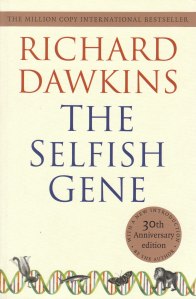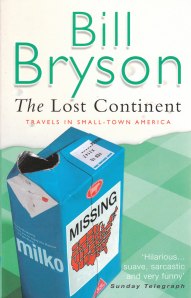Author: Virginia Woolf
Publisher: Penguin
Date Published: 1928
Pages: 112
I bought ‘A Room Of One’s Own’ for three reasons. Firstly, it was $10; who can say no to such prices? Secondly, Virginia Woolf possibly has one of the most bad arse names of the century (it sounds like she’s from a comic book – and packing heat). Thirdly, I felt as if I owed the feminist literary movement some page time. It was more of a ‘I should read this, I owe you’ feeling, rather than a burning desire.
But I wasn’t really looking forward to reading it that much. Part of this was due to my expectations – and let me be frank here – I was expecting a whiny tone and a vehement polemic rather than a discussion. I was imagining something akin to that special group amongst the modern feminist circle; the well off, white, liberal intelligentsia who have little grip on reality but a very low threshold for being offended.
Other reasons were not so cynical. I am well versed in the arguments and discussions of feminism due mainly to the wealth of feminist blogs on the internet (rather than through books or school education). Although people like Woolf were the pioneers – and thus the original thinkers – it didn’t change my feeling that I would be reading something I had already covered. I didn’t want to hear the arguments again, regardless of the degree of sympathy for their points or how valid they were.
Oddly enough, it is poverty that motivated me to read ‘A Room of One’s Own’. A moratorium of biblical proportions has been enacted on me by my boyfriend and father – I am not allowed to buy anymore books for a looooooong time. (It’s apt that men are involved in this repression of my book rights!). Long story short – it’s caused me to look back at what I already own, but haven’t read yet.
It turns out that I shouldn’t have been such a bastard, since it was a very enjoyable read. Woolf had been asked to speak about women and fiction for the Arts Society at Newnham in 1928, which would inevitably lead to the lengthened published version known as ‘A Room Of One’s Own’. Instead of writing the usual essay – with an introduction, elaboration of arguments and then conclusion – Woolf opted to tell the story of her thought processes as she pondered the chasm wide subject; women and fiction.
Her method is interesting and effective. Woolf successfully conveys the meandering, indefinite nature of the development of ideas and the interconnected, yet oddly disjointed, manner in which people wrestle against themselves during this process. Her descriptions are perceptive and luscious, and her manner of argument firm, yet spirited.
Her main theory – that women need the security of money in order to write well – is pragmatic and I believe well founded. This not only allows the writer privacy and mental breathing space, but also allows the writer to pursue education – the great brain juice of all geniuses. She argues that a truly great writer can then rise above the torments of their gender and write with clarity, rather than vindictiveness (Woolf makes the point that even if this rage is well deserved, it does little good for the text). She uses Shakespeare as an example of a genius who became androgynous in his writing manner. This theory is obviously discussed in much greater detail and nuance than I can convey here, but of course the validity of her points is up to the reader to decide.
This quote in particular was a bittersweet epiphany for me:
“Suppose, for instance, that men were only represented in literature as the lovers of women, and were never the friends of men, soldiers, thinkers, dreamers; how few parts in the plays of Shakespeare could be allotted to them; how literature would suffer! We might perhaps have most of Othello; and a good deal of Antony; but no Caesar, no Brutus, no Hamlet, no Lear, no Jaques – literature would be incredibly impoverished, as indeed literature is impoverished beyond counting by the doors that have been shut upon women.” – Chapter 5, pg 83
It made me mourn how much literary insight into half of the human condition has been lost, but also feel hopeful towards the gains made during the last century or so, and the path into the future.
A word of warning on this cheap edition; it could have really benefitted from an introduction. When I was finished I felt really hungry for further analysis, such as initial reactions to the lecture from her contemporaries, a history of Woolf’s life and some background information on some of the more obscure references in the text. I wish that I had bought a more expensive Penguin addition, as they usually have forewords and introductions from people of such knowledge (I don’t know where they find these lurking literary commentators – I like to imagine that they send out owls like in Harry Potter).
I’m looking forward to reading more of Virginia Woolf’s work; I think my next choice will be ‘Three Guineas’. Woolf’s writing is illuminating, rather than alienating, and I wouldn’t hesitate in recommending this book to anyone interested in literature, regardless of their gender.
♥♥♥♥ – 4/5




I’m glad you enjoyed the Woolf essay. In another essay, The Angel in the House, she write about how trying to be there for other people’s needs is destructive to a writer. I man may be selfish in reserving his time for his own needs, but a woman is socialized to be “the angel in the house.”
Unfortunately my Mum definately suffers from ‘the angel in the house’ syndrome, due to our expectations of her. As I’ve grown up I’ve made a conscious effort to try and reverse the situation.
For instance, if my Dad works overtime its expected, but if Mum does so it’s EVIL because everyone NEEDS her to be there.